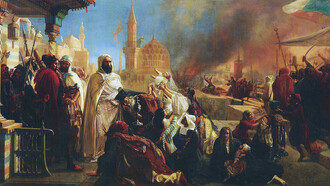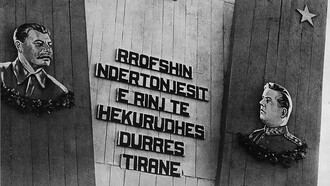In silence, I tell you love is silent
(Meher Baba)
Recently, I read the summary of a conversation between Jimmy Carter and Donald Trump that took place in 2019, during Trump's first reign:
At a Sunday talk in 2019 that he gave at his church, the Maranatha Baptist Church in Plains, Georgia. President Carter said he got a call from the night before, and they talked about China. Carter said that Trump was rightly concerned that “China is getting ahead of us.” Carter said he told him, "You're worried that China is getting ahead of us, and I agree with you. But do you know why China is getting ahead of us? I normalized diplomatic relations with Beijing in 1979. Since then, do you know how many times China has gone to war with anyone? Not once, even though we're constantly at war. China hasn't wasted a penny on war, and that's why it surpasses us in almost every area. And if we had spent $300 billion to install infrastructure, robots, and public health in the United States, we would have high-speed transoceanic bullet trains." We would have bridges that don't collapse, free healthcare for Americans.”
Carter's point was in summary: “While China has spent decades glimpsing the future, we have been digging graves in the past. They have built cities, schools, and trains that move faster than previously thought. We have built military bases, debts, and a rusty empire. China chose infrastructure. We interfere. They built railroads across continents. We bomb bridges across borders. They invested in artificial intelligence, medicine, and education. We are in overthrowing oil-rich governments.”
I found this very interesting, and it brought to my mind two things: first the fact that the characterizations of good and evil from the mythical to the sociopolitical, the pointing out at the sins of the guilty ones, left, right, conservatives, liberals, tend to be based on a judgmental mode that bypasses somehow the selfishness and myopia that is part of human evolution at large. So, regimes, political leaders, all of them, as well as individual human beings, are capable at different levels to cause harm and to do good things for others, irrespective of political ID. And I remembered that at all stages in my life, the news of a world in constant war was there, independently of political parties or ideologies holding power.
The second thing that this tidbit of Internet-researched information (which I did verify and fact-checked) did to me was to bring about memories of the first time I visited China, in 2009.
I attended a meeting in Shanghai for two days, immediately flying on to Beijing for a one-day meeting. The meeting was on a Saturday, and my flight out of Beijing was leaving the next day in the afternoon. I asked at the hotel to recommend what sightseeing I could do, being there for the first time, and they suggested that I should visit the Forbidden City and Tiananmen Square. The taxi, following the instructions in Chinese, dropped me off next to the Square. In my pocket, I carried a little piece of paper in Chinese, for the taxi back.
And what an incredible crowd!! When I got off and stood there, I realized that at least a million Chinese had decided to do the same on their Sunday. I felt like a cockroach in a dance of chickens. I didn't understand the spoken language, the written signs, or people's body language. I felt surrounded by humanity. Amazed by so many people with so much life inside. I felt within me at that time the humanity of humanity.
This led me to think about all the so-called modern human communication. What is communication really? When we establish an exchange with the other or with others, we can communicate affection, love, hate, lies, deception, call attention to something that is happening, share an alarm or a beautiful sight (from our point of view, of course).
What modern technology has done is to make possible instant interconnection between people all over the world, but not communication. We started interconnecting with smoke signals, flags, telegraph, telephone, cinema, radio, television, cell phones, and the present internet networks, which today instantly bring us gossip, truths, lies, poems, words, stories, images, and voices, from Peru to Timbuktu.
But communication happens when an experience, knowledge, or feeling is shared. Therefore, if someone calls China on the phone but does not know Chinese, nor does the other person know English, there was connectivity but no communication.
To share something, one has to feel it in oneself. No one can explain a headache to someone who has not suffered one. A mathematician cannot share his discovery of quadratic equations with a professional dancer, nor can the professional dancer make the mathematician feel the grace of his steps. The harangues of a lynch mob leader stir up the hatred of the members of the mob because they connect with their fear and ignorance. But someone like Gandhi mobilized people because he connected with the love and humanity that we also carry inside.
Affection, love, the ability to understand the reality that we are all intimately knotted in the processes that sustain nature and life, is something that requires the awakening of a consciousness that we all have, that lies beyond our political, religious, or tribal affiliations and intellectuality.
Usually, what we communicate is our points of view. And we all have different points of view based on our self-definitions, attachments, and our fears. That's how we live.
I think that there are two parallel developments going on now in the world, one the integration of people on a one-to-one basis, the mixture of cultures, and the transcendence of nationalisms and sectarian beliefs. The number of multicultural families in the world today is greater than ever, as well as the dissemination of images, information, and videos, where people see the daily humanity of others. Civilization is in a process of synthesis. The other thing that we see also happening throughout the world, and which is being particularly active in political currents in the United States and Europe, is a return to the tribal past, the recalcitrant stance of racial and nationalist cultures, fearful of the dilution of their cultural niches and the emergence of an integrated humanity.
There are two ways in which these streams are spreading. The first is more personal, based on the entire human experience, on a deep communication that involves words, but more than words, feelings, which are exchanged in intimacy and silence, and not in harangues of influencers through social networks, or alarming news in the media.
The second is using the Orwellian methodology of doublespeak or alternative facts, as Trump would say. Massive influence campaigns to connect people's fear and insecurity, in the face of the inevitable new planetary human civilization, are being conducted by unscrupulous leaders who aim to develop and consolidate their power.
I went back to my memories of China and remembered that a year after that first visit to Beijing, I went back again for another meeting, to develop a project. My Chinese counterpart was called Chen Xinming. I had never met him. We stayed at the same hotel in Beijing, he, his interpreter, and I. We had a day of productive meetings; the interpreter was essential because otherwise, there would have been no communication of any kind. I thought.
The next day, we agreed to have breakfast at the hotel restaurant. Chen and I arrived and looked at each other without saying anything; we smiled. The interpreter had not arrived, so we went to help ourselves to breakfast and sat at the table. He looked at his watch, looked at me, and smiled. I smiled back. We had been there for almost 15 minutes. He called on his cell phone and spoke to someone, I imagine with the interpreter, and he looked at me and smiled.
Another ten minutes passed. Chen looked at me again, stood up, and motioned for me to do the same. I did, and then he came over and gave me a heartfelt hug. I felt his affection, his friendship. At that moment, the interpreter arrived, and he said something to her. And she said to me: Mr. Chen wants to tell you that the fact that we were not able to speak does not mean that we did not communicate, the important thing is that with the hug we said much more than we would have said to each other with words.
I gave him another hug. Yes, I thought, the new humanity is going to be born from our inner being.















